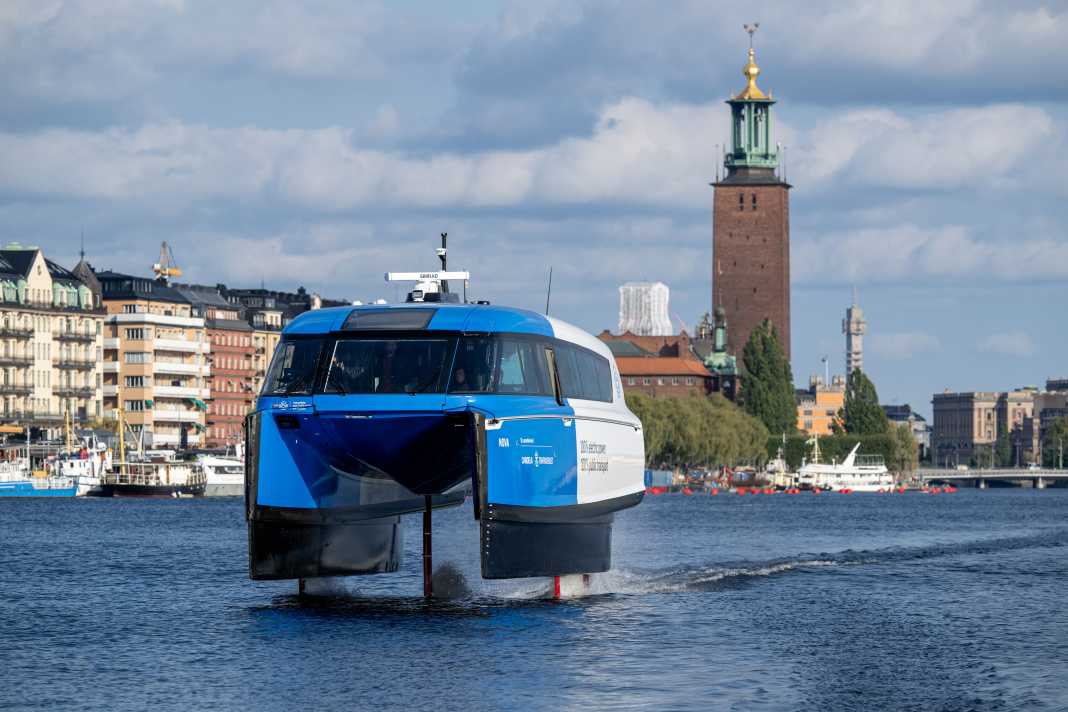





The new flagship of Stockholm's urban transport system left its dock in the quiet suburb of Tappström at 7.15 a.m. on Tuesday. On board: the first commuters who had been eagerly awaiting the start of the new hydrofoil line between Ekerö, Stockholm's fastest growing island suburb, and the city centre 15 km away. For them, the use of the world's first foiling e-ferry means halving their morning commute. The Candela P-12 "Nova" takes just over half an hour to complete the journey. With conventional ferries, buses or cars, the journey used to take a good hour.
Higher, faster, further
Candela launched its first commercial ship, the Candela P-12 Shuttle, in 2023. With a top speed of 30 knots and a range of 40 nautical miles at 25 knots, it is the world's fastest and longest-range electric ship. It is also the most energy-efficient high-speed vessel ever built in its size class. The "Nova" is now the first model to be put into service. Another model has already been sold to New Zealand, where it will be in service from 2025.
Conventional ferries consume enormous amounts of energy at high speeds and generate a lot of waves. This limits their speed in the city centre. The computer-controlled hydrofoils of the Candela 12-P lift the hull out of the water and reduce energy consumption by 80 per cent compared to conventional vessels. The "Nova" is powered 100 per cent by renewable electricity and emits minimal noise even at high speeds thanks to its electric C-POD motors without mechanical gears. As it produces hardly any wake, it can travel at high speed within city limits. It does not require an expensive wick infrastructure; it is charged at a normal car quick charger at the town hall.
Renaissance of the waterways
The manufacturer's vision: to make water transport in the city more sustainable, more affordable and faster than by car. "This is a paradigm shift for urban transport and a revitalisation of our waterways," says Gustav Hasselskog, founder and CEO of Candela. In many cities, the shortest route is by water. Nevertheless, the potential of waterways has not yet been fully utilised due to the high costs, wave impact and emissions. Hydrofoil technology could mean a renaissance for the world's waterways, says Gustav Hasselskog. "It's exciting that Stockholm is taking on a pioneering role here." There certainly seems to be a lot of interest: even before the official market launch, Candela 2024 received orders from New Zealand, Saudi Arabia and Berlin, among others.
